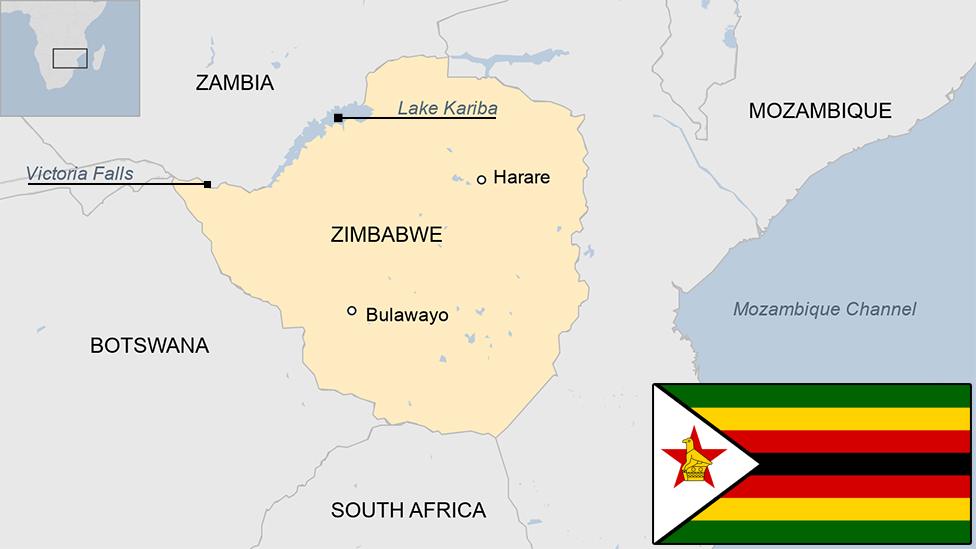Zimbabwe election: Five things
- Published
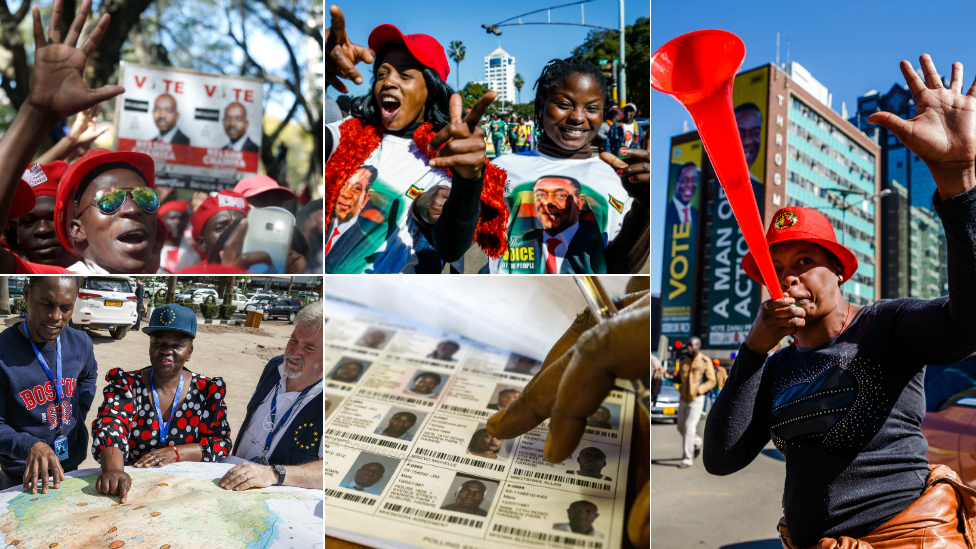
More than five million Zimbabweans are going to the polls on 30 July to vote in historic elections. But what makes it different from previous votes?

1) First election without Mugabe
Since Zimbabwe's birth in 1980, only one person has ever won an election to lead the country - Robert Mugabe. He was prime minister until a presidential system was introduced in 1987.
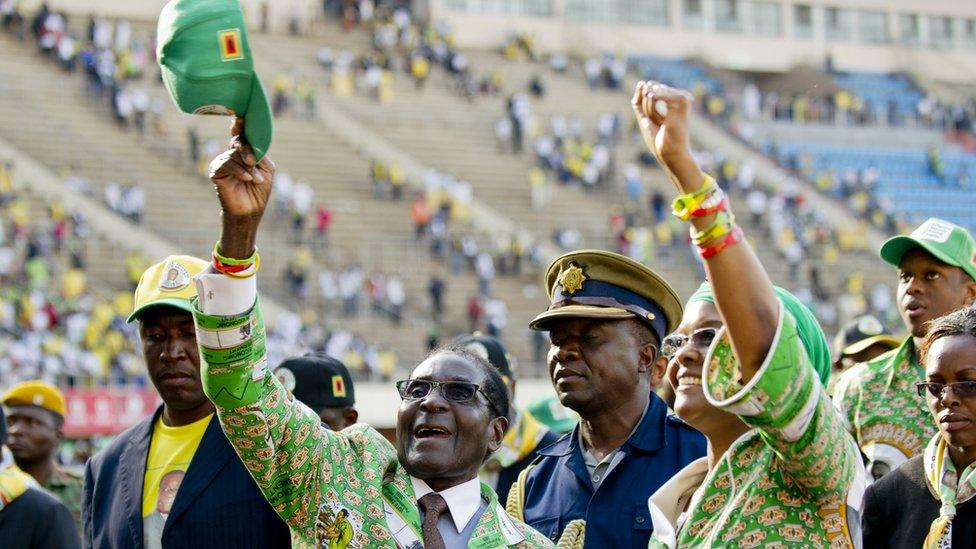
Robert Mugabe, who has dominated politics for 37 years, was manoeuvring for his wife to get power
But the 94-year-old was ousted from power last year by the army and those in his own party who were angered at moves to allow his wife Grace Mugabe to succeed him.
A few weeks before the military takeover in November, Mr Mugabe had fired his deputy, Emmerson Mnangagwa, and was manoeuvring for his wife to be appointed in his place. But it ended in his downfall and Mr Mnangagwa became president. He is now the Zanu-PF's presidential candidate.

See more stories and videos like this
And there is a change in the air when it comes to campaigning as all parties have been able to hold rallies and marches without hindrance or intimidation, unlike in previous polls. International election observers from the Europe and the US have been welcomed for the first time since 2002.
The media scene is also vibrant, with different views being expressed - though state media is still seen as the mouthpiece of the ruling party.

2) Longest ballot paper
Robert Mugabe's exit from the scene has led to a flourishing of political ambitions - and 23 names will appear on the presidential ballot.
Fifty-five parties are also contesting the parliamentary election. Commentators say this shows how feared the former president had become during his 37-year rule.
Some of those trying their luck have returned from the diapora to relaunch their careers. But the main presidential contenders are Emmerson Mnangagwa of the ruling Zanu-PF and Nelson Chamisa of the opposition MDC Alliance.

The frontrunners:

However, there is a controversy over the two-column design of the presidential ballot paper, which has Mr Mnangagwa appearing at the top of the second column. The opposition says this is illegal, but electoral chief Priscilla Chigumba said if it was done as a single column, when folded, a voter wouldn't be able to post it into a ballot box as it would be too thick for the slot.
Allow X content?
This article contains content provided by X. We ask for your permission before anything is loaded, as they may be using cookies and other technologies. You may want to read X’s cookie policy, external and privacy policy, external before accepting. To view this content choose ‘accept and continue’.
Evan Mawarire is not standing on the presidential ballot, though he is vying for a seat as a councillor in the capital, Harare. The charismatic pastor became famous for his courageous criticism of Mr Mugabe's rule. His viral #ThisFlag movement was sparked after he spontaneously posted a video expressing his frustration at the woeful state of the nation - and urged Zimbabweans to be proud of their flag and demand change. He then organised a two-day shutdown in July 2016 - the biggest strike action in more than a decade - and was charged with trying to overthrow the government. He was acquitted a week after Mr Mugabe resigned.

3) Ghost voters 'banished'
The Zimbabwe Electoral Commission (Zec) has introduced a fingerprint ID system to register voters, which it says has been able to identify when people register more than once.
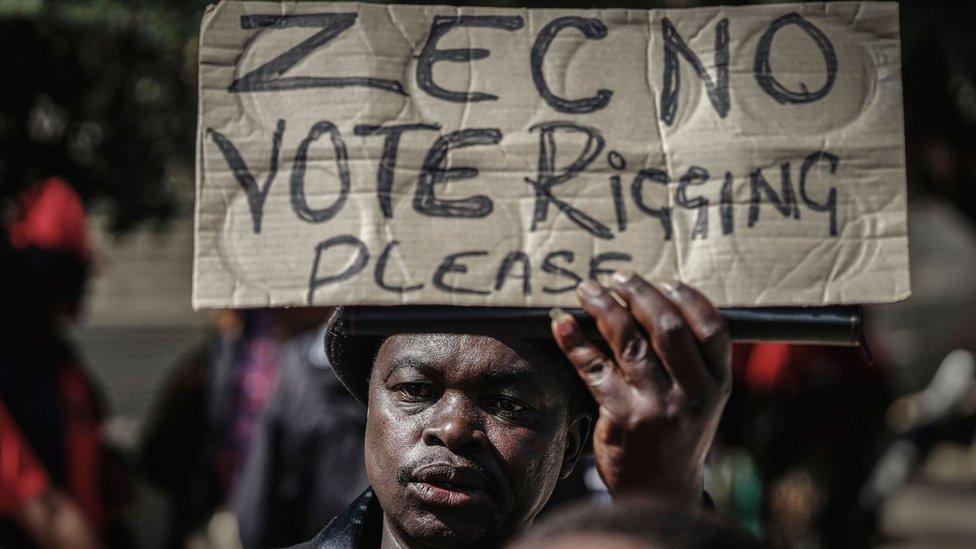
Many in the opposition are still suspicious of the electoral commission
It says the new system, which required everyone to re-register, means the voters' roll is now "clean" and free from ghost voters. In total 5,635,706 people are registered - 238,409 fewer than in 2013, despite an annual population growth of more than 2%. In the past, one way in which people have allegedly rigged elections was by using the identities of dead people still on the voters' roll.
The commission has denied recent allegations that 250,000 ghost voters have managed to get on to the new list. It cited the example of a woman in Mutare, in the east of the country, who had registered three times, giving a different address in each case. But Zec said the ID system had spotted it was the same voter and her duplicate entries had been removed. In total Zec says 92,000 people who initially registered have been excluded because of various anomalies.

More on Zimbabwe after Mugabe:

The finger-print ID machines will not be used on polling day, but unlike in previous elections, people will only be able to vote at the polling station allocated when they registered - and their ID and the photo taken during the registration process will be used to identify them.

4) 'Witchcraft' animals banned
The election commission has banned a whole host of things from candidates' logos, including some animals and weapons - though guns are allowed.
This is the full list of outlawed symbols, in the order it appears on the Zec website, external: Flame lily, cheetah, elephant, secretary bird, flaming torch, leopard, lion, buffalo, griffon (mythical creature), owl, bird of prey, cobras, sword, rhino, laurel wreath and axe.
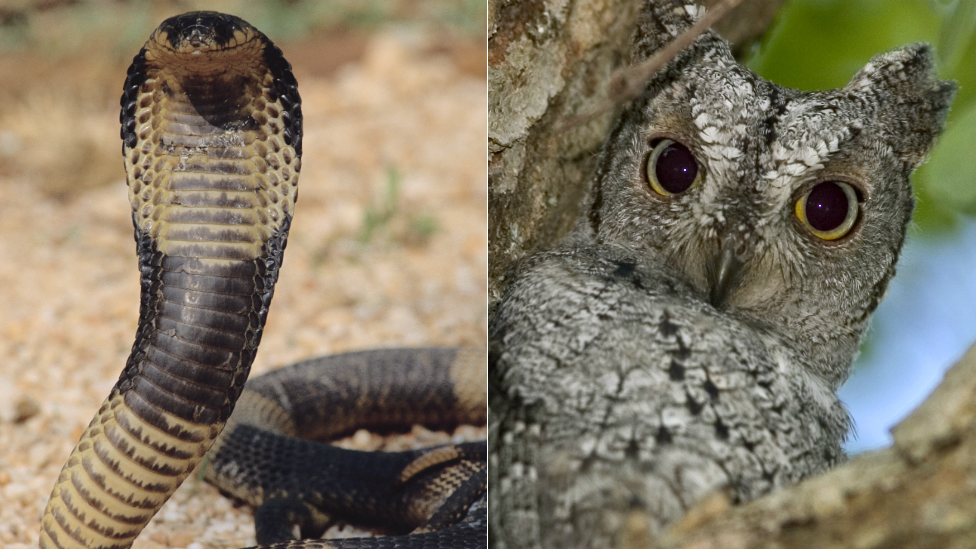
Cobras and owls are associated with sorcery in Zimbabwe
No official explanation has been given for why they are not allowed. Historian Pathisa Nyathi told Zimbabwe's state-run Chronicle paper that witchcraft may have been a contributing factor in some cases, external: "From an African point of view for example, an owl is associated with witchcraft. A snake can equally be associated with witchcraft. Also, depending on the type of snake, it could be related to ancestral spirits.
He added that plants and animals seen as having "national significance" might also be a reason for the ban. The flame lily, for example, is Zimbabwe's national flower.
The ruling Zanu-PF uses an image of the Great Zimbabwe ruins as its emblem - an iconic stone tower from an ancient empire between two trees to symbolise unity; the opposition MDC has an open palm of a hand to depict openness.

5) Decline in anti-gay hate speech
The director of a gay rights group says there been "a sharp decline in use of hate speech and harassment of the LGBT community" during campaigning in Zimbabwe, where homosexual acts and gay marriage are banned. Mr Mugabe once infamously said gay people were "worse than pigs and dogs" and claimed homosexuality was unAfrican.
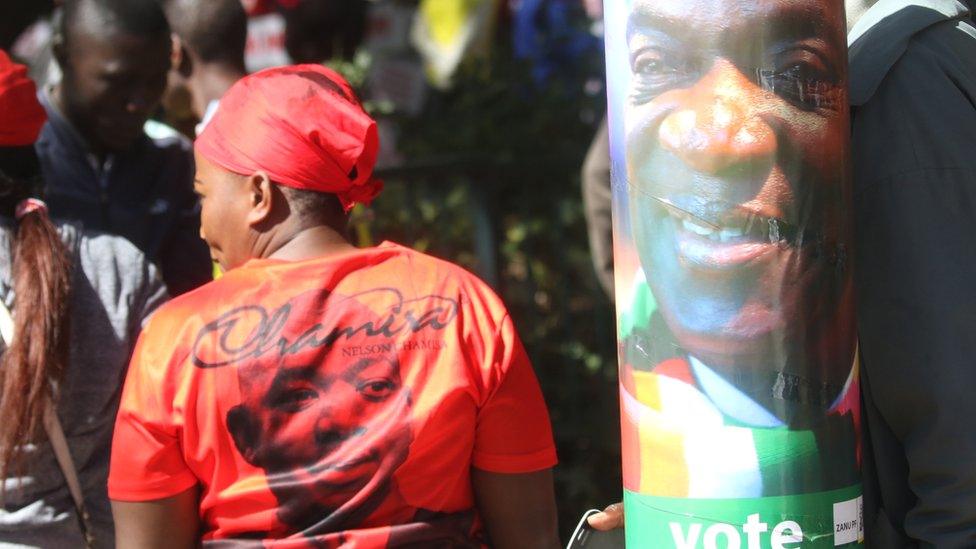
No party has included the issue of gay rights in its manifesto
"LGBTI issues have been used as a tool to divert Zimbabweans from discussing other pressing issues affecting them and a convenient ploy for political leaders facing rampant unemployment, political unrest, and a downward economic spiral," Chester Samba, from Gays and Lesbians of Zimbabwe (Galz), told the BBC News website.
"Elections in the past have been characterised by scapegoating a largely invisible and unpopular minority, creating moral panic, which at times easily escalated into a witch-hunt."
He admits that no party's manifesto has anything specific on gay rights, though Zanu-PF did invite Galz for a meeting to gauge the challenges the LGBT community faces.
Gay people face widespread stigma in Zimbabwe - it has been too dangerous to live as openly homosexual and as a result many have been too scared to go to hospitals for treatment when they get ill. In another sign that attitudes may be changing, the body that co-ordinates the treatment of HIV and Aids in Zimbabwe has announced that it is opening up five drop-in centres nationwide for gay men., external
- Published3 August 2018
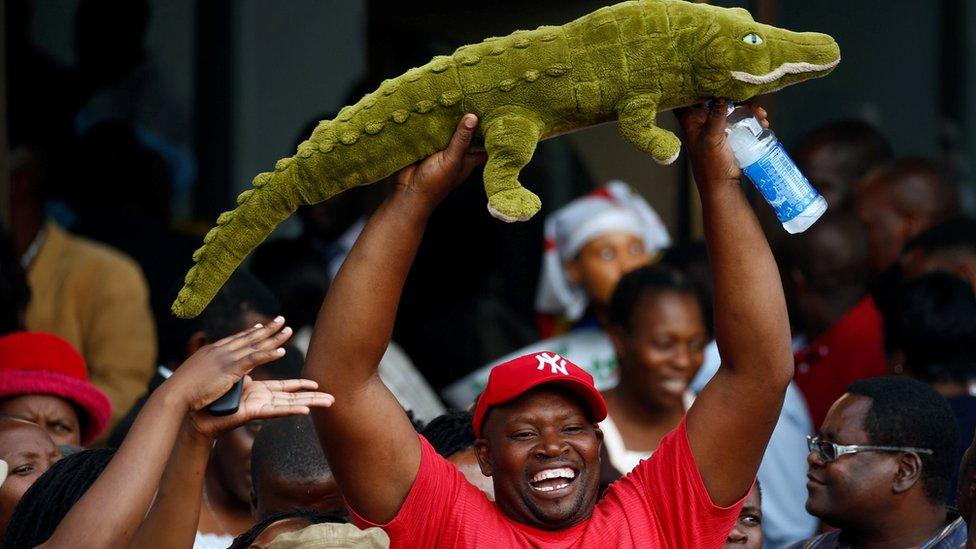
- Published3 August 2018
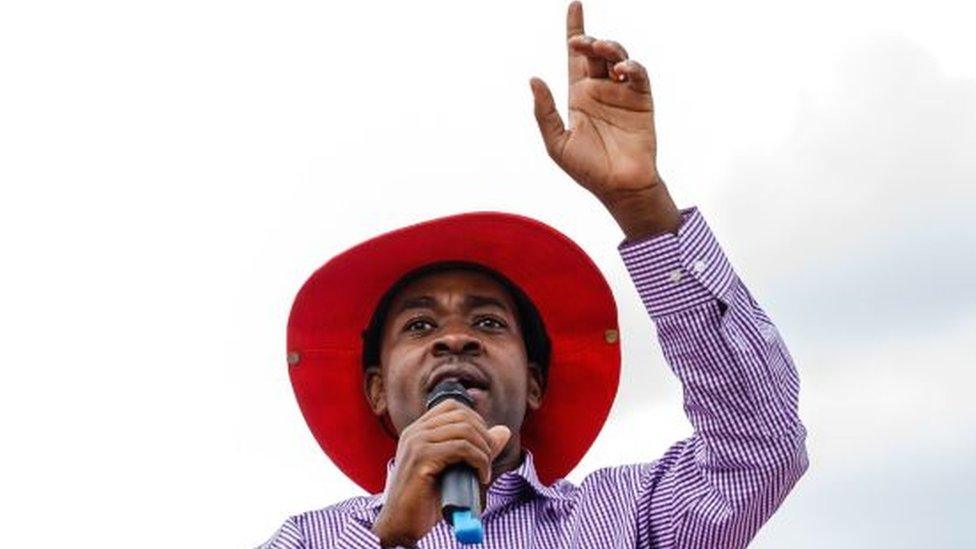
- Published21 June 2018
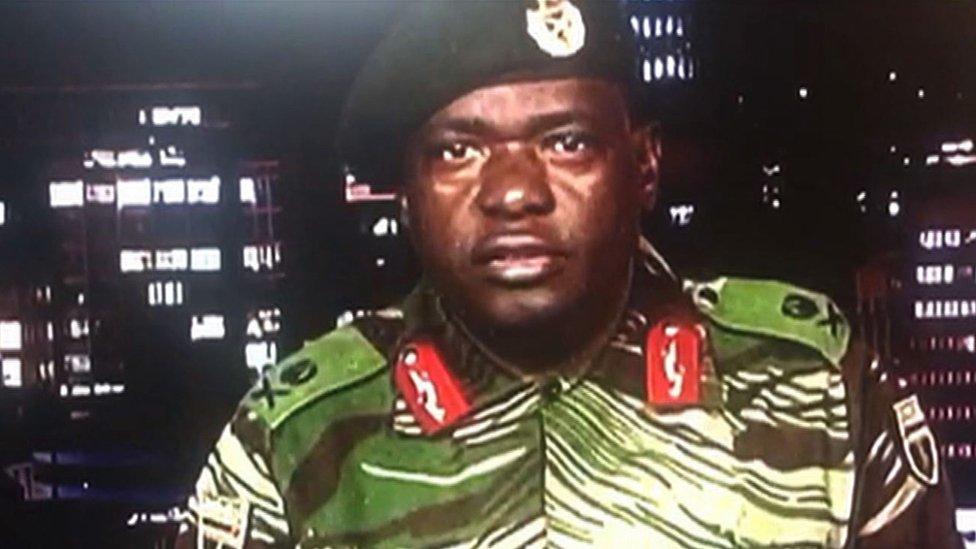
- Published27 June 2018
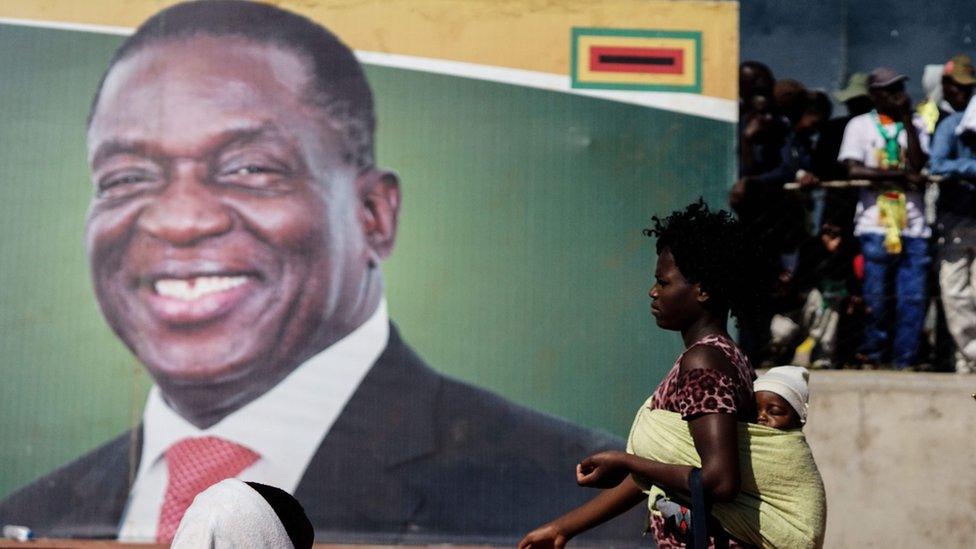
- Published22 June 2018
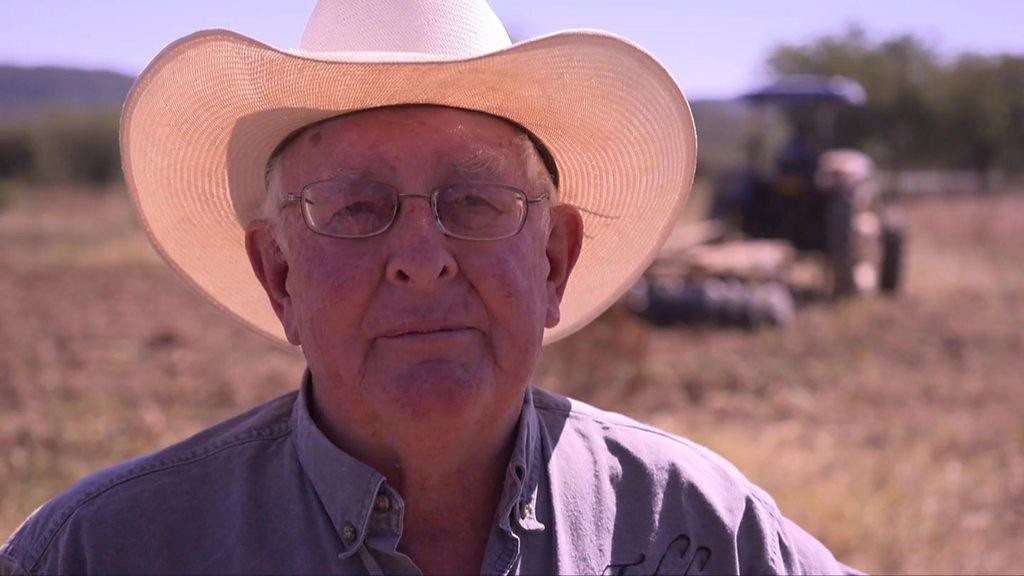
- Published28 March 2018
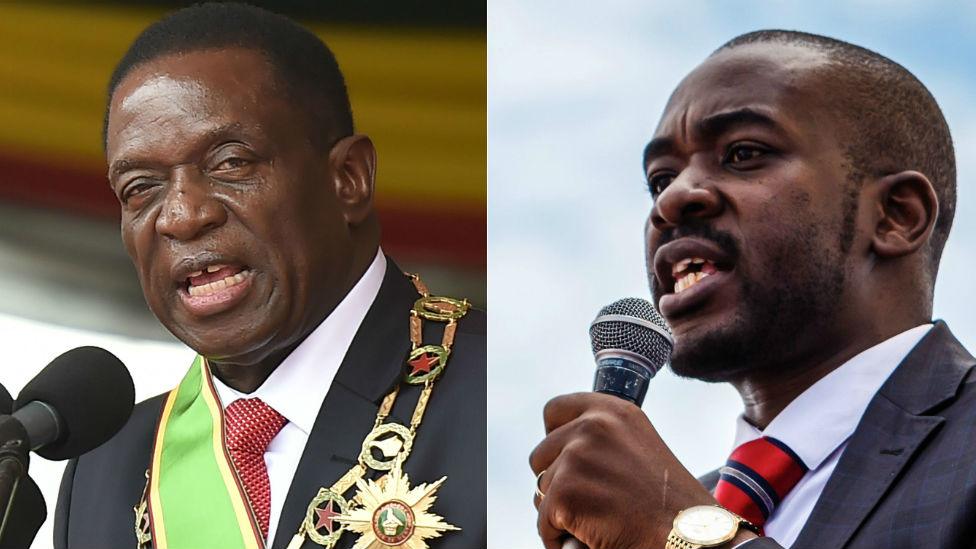
- Published30 August 2023
